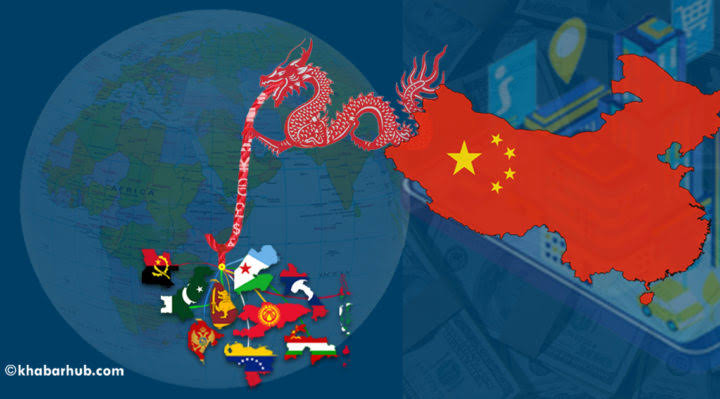China Planning to capture Africa With Debt Trap

After offering loans to countries in Africa, China is now leveraging the “debt trap” to strategically penetrate the continent’s political landscape.
Chinese financiers have so far committed more than USD 153 billion to African public sector borrowers between 2000 and 2019 which is pushing the continent into debt, according to researchers.
China has recently emerged as a major lender in more than 32 African countries including Angola (USD 21.5 billion in 2017), Ethiopia (USD 13.7 billion), Kenya (USD 9.8 billion), Republic of Congo (USD 7.42 billion), Cameroon (USD 5.57 billion) and Zambia reaching USD 11.2 billion in 2019.
Notwithstanding, the debt Africa owes to China is persistently on the rise.
Research historically has shown that soaring debt has the ability to compromise the sovereignty of African states, owing to the complexity of corruption and frequent political instability in the continent.
An article by an online International Journal, IJSER, seeks to interrogate the impact of Chinese loans to Africa through a review of secondary data. The article provides a different lens (negative impact) of Chinese loans in Africa in the 21st century.
During the wave of African independence post-the second world war, African economies incurred substantial debts from to the dictates of Britton wood institutions (International Monetary Fund and the World Bank) which they could not repay.
The debt kept African countries at a vulnerable position. Hence, by mid-1990s, Africa was booted out of the global financial system due to unpaid loans.
There were various attempts to address the debt. Africa again, is presently confronted with another side of the same coin- “debt-trap”. This time from China.
The notion of the debt-trap was coined by graduate students who attempted to describe the nature of China’s loans to developing countries. It was later popularized in the context of “China debt-trap diplomacy” by scholars who have proven that China is deliberately offering loans to developing countries with high debt risks in order to put them in a position where they are subjected to the dictates of Beijing.
One scholar argued that even the “aid” that China offers to promote education in Africa has severe colonial implications. Thousands of scholarships that China offers to African students to study in various Chinese universities are aimed at shaping and cultivating Africa’s next generation of leaders to remain loyal to future Chinese policies toward Africa.
Another scholar highlights the fact that to understand the broader implications of China’s debt-trap diplomacy in Africa, one must weigh the risks and the benefits of Chinese loans across Africa.
The peril of Chinese debt in Africa is evident.




